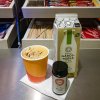JUMP TO
In this article we’ll focus on stress, learning what stress really is and what is the impact of stress when it comes to your health. My motivation behind this article is to talk about the 5 keys to health, pointing you in the right direction when it comes to improving your overall health.
We see more and more experts saying that stress is indeed the root cause for all diseases (and you’ll see why this is true in a minute). So it’s safe to say that, if you’re able to manage your stress, you’ll be in complete control of your own health. It’s that simple, really! But in order to understand health or disease, you need to understand stress.
What is Stress?
What does the word “stress” really mean? Most of us use the word “stress” when talking about emotional stress (eg: I am stressed, I had a stressful day, we’ve gone through a crisis, etc).
Technically speaking, stress can actually be broken down into 3 main categories:
- Emotional stress
- Physical stress
- Chemical stress.
Let’s look at each of these categories or stress, understanding where they originate and how they work to create disease:
- Emotional stress is what we usually mean when we’re using the word /stress/. Emotional stress is simply a response to the way we perceive our environment. The trigger can be anything, like for instance a problem at work, an angry boss, a situation, relationship, fear of something or someone.
- Physical stress can be the result of excessive physical activity or a sedentary lifestyle, but can also originate from problems in the spine.
- Chemical stress is stress related to all kinds of man-made chemicals that are constantly found in our environment (air, food, pesticides, preservatives, heavy metals).
When talking about stress, we need to make the difference between good stress and bad stress. Yes, there is such a thing as good stress!
- Good stress – Stress can be great if, for instance, we’re talking about a short term activity that has a positive outcome on your health. Think about a problem solving activity (emotional stress) or some form of exercise (physical stress) designed to improve your overall health. These are both examples of good stress that can actually promote stress.
- Bad stress – Also known as chronic stress, this type of stress has negative effects on one’s health. Simply put, chronic stress is stress that extends over a long period of time, not allowing your body to recover. It could be emotional stress (eg: bad relationship, bad work environment, saber tooth tiger). It could be physical stress (subluxations, bad working position, physical injury). Or it could be some type of chemical stress (pesticides, chemicals in food, junk foods, GMOs, etc).
Living in a permanent state of stress – *chronic stress* – will eventually lead to a suppressed immune system. Sooner or later, when the body won’t be able to keep up with the chronic stress level, one develops chronic health issues. This can be anything from weight gain to heart problems of cancers.
Do you see now what I’ve said that stress is the root cause for all diseases?
That’s why it’s very important to know exactly what to do when stress strikes and how to prepare yourself even before it strikes. When time comes, it’s mandatory that you’ll be able to make healthy choices, instead of choices that lead to chronic stress.
The key word here is “change”. You need to be able to identify the cause of stress and to make changes that will get you out of the chronic stress pattern.
These are the 5 keys to manage chronic stress exposure and the contributing factors to maintaining perfect health:
- Mindset
- Food
- Exercise
- Sleep and Recovery
- Toxins
1. Mindset
What is the name of the switch that controls your biology? It’s Perception!
According to Dr Bruce Lipton and his life-long research into the new science of Epigenetics, “The mind is the primary cause of illness today”.
Take a moment and think about what can happen if you’ll be able to control the way your mind acts. Our entire body is controlled through the way we see (perceive) the world, which means our entire life is an image of our perception of the world.
Putting things simple, if you are able to see the world is a positive way, you’ll end-up living a positive life. But if you “train” your mind to look for negatives, your life will be centered around negativity. And that’s when stress kicks-in.
This is why it’s important to develop a strong mindset that can help you get up when it’s hard.
The real question now is: “How do you do this? How do you get to that positive mindset?”. While the discussion is far more complicated than a few paragraphs, I can at least point you in the right direction and you can do your own research further.
Here are a few ideas on how to change your mindset:
- You need to learn how to identify bad thinking patterns and change them to positive thinking patterns.
- This can be done through connection with new people, getting a life coach of a mentor, going to specific courses, or simply by surrounding yourself with new and meaningful information.
- The goal is to get out of the autopilot and reprogram your mind so that you create new positive behaviors.
This process will take time and will definitely take effort, but the good news is that you can do it. Anyone can do it! And once you’ll do it once, you’ll be able to replicate the process easily.
Read more: Change Your Habits And You’ll Change Your Life
2. Food
What we put in our mouth dictates the way our body functions. That’s a fact and we can’t ignore it, especially in this modern world where chronic stress is at an all time high. The demands for healthy nutrients is higher than ever and that’s why it’s mandatory to feed your mind and body with health nutrients,
One strategy that I employ is to always keep in the house plenty of healthy foods, while avoiding eating too many grains, vegetable oils, foods with added sugar, junk foods or processed foods, high sugary treats or traditional desserts, as well as other foods with harmful ingredients.
I always make an effort to eat whole foods, choosing foods that don’t come with unnecessary ingredients. As for plants, I try buying those that are in season and locally grown, and I always try choosing organic vs conventionally grown produce.
I have a simple rule for eating and that is to make room on my plate for as many different ingredients as possible. In order to maintain health you have to eat as varied as possible, getting the nutrients from as many different sources as possible. For example, eating a big steak will not make room for enough veggies and healthy fats. But eating a smaller steak will make enough room for that big salad and why not a healthy low-carb dessert afterwards. Do you see my point? Try to eat a balanced diet, too much of anything isn’t good in the long term.
I simply don’t believe in diets and I certainly don’t count calories. I think that a low-carb high-fat medium-protein way of eating is what might benefit most people. But that’s not all …I make it a priority to have enough colorful plants and healthy fats, with just enough quality proteins and healthy fiber. I believe one should include lots of vegetables, correctly prepared legumes, nuts and seeds, healthy fiber, raw dairy that comes from healthy animals and, if you prefer it, quality meats.
The point to remember is this: surround yourself with plenty of healthy fats and eat a plant based diet. Once you’ll start including healthy fats like avocado, coconut, olives, nuts and seeds or raw dairy to your meals, your body will eventually get into a fat burning mode. This means your body will start optimizing itself up to a point where, instead of eating 3-5 meals a day, you could just eat 1-2 meals and literally fast when you don’t have access to healthy foods (like in a stressful situation maybe).
The takeaway here is:
- Keep only quality foods inside the house.
- Consider a low-carb high-fat approach to eating.
- You should eat plenty of healthy fats and vegetables, with some correctly prepared legumes, plus nuts and seeds.
- As long as you’re eating whole foods, you will have plenty of energy and be healthy.
- Get your body into fat burning mode by always including healthy fats to any meal (yes, including desserts).
- Fast to improve cognitive function and to optimize your body’s functions.
- Make room on your plate for as many foods as possible.
Read more on healthy food choices:
- Healthy Eating: The Short Guide to Healthy Food
- 10 Tips for Making Healthier And Conscious Food Choices
3. Exercise
Exercise, movement or play are all the same and they are mandatory for healthy living. The benefits of exercising are related to both physically and mental well-being, Our bodies are designed to move and to engage in a form of positive physical stress, because that’s when the blow starts flowing, that’s when your muscles grow and that’s when the immune system thrives.
Exercising is not complicated, it hardly requires any knowledge and, contrary to what you might think, it’s safe and good for you. You don’t have to be an athlete to exercise, you just have to know your limits and start from there. The most important thing is to move your body in different ways, spending as much time as possible moving in nature.
Did you notice that I’ve said “moving” or “play”? That’s because I don’t think chronic exercise patterns and those prolonged training sessions at the gym will make you healthy. In my opinion, exercise is one of those areas where less is more. In this case, less exercise can add more to the benefits list than a prolonged training session that will get your body exhausted and unable to recover for the next “session”.
Especially if you’re dealing with a stressful situation in your life, you don’t want to work-out until you reach your physical or mental limits. When it comes to exercise, things don’t have to be complicated. Try to keep your body in shape with basic bodyweight exercises like pull-ups, push-ups, squats, walks and short sprints.
Read more: Getting in Shape: Bodyweight Strength Training for Beginners
The takeaway here:
- Less in more when it comes to exercises
- Movement is something that we as humans are designed to do
- If you’re a beginner, start with basic movements
- Try to vary the exercise patterns as much as possible
- Exercise according to your mood not to a schedule
- Learn the healthy way to recover after an exercise session
4. Sleep and Recovery
Sleep is very important because that’s when our body gets into the repair and regenerate mode. We need 6-7h of deep sleep per night, in a dark and quiet environment, without interruptions of any kind. It’s best to go to sleep before midnight and wake-up naturally when the sun is up.
In terms of what not to do, you’ll also want to avoid putting your mobile phone near your bed and you’ll want to keep the network off. This way you’ll avoid those EMF signals generated by your phone, as well as potential phone calls that could wake you up. Feel free to do the same with any other electronics you might have in your bedroom. Also, please don’t fall asleep with your tv on, this will cause sleep interruptions which negatively impact the quality of your sleep.
Ideally you’ll go to sleep relaxed and only after a few minutes of meditation (call it reflection on the day that passed). It’s mandatory that, when you’ll go to sleep, you’ll be in a true state of calm. There is no room for stress in the bedroom. You have to realize that there is nothing more important in your life than your health, and if we don’t take care of ourselves first, you won’t be able to take care of your family.
One way to know if you’ve sleeping the right way is to test how refreshed you wake up in the morning. If you wake you easily and ready for a new day, you’re probably fine. But if the day ahead looks like a challenge or if you need a morning treat in order to boost your optimism, you know you need to change something in your sleep routine.
The takeaway here is:
- Sleep 6-7h a night, too much sleep is not good anyway.
- You need deep sleep, no interruptions, no light, no noises.
- The bedroom is a place of calm, inner peace and happiness.
- Do not bring your work to the bedroom and don’t ever do it before bed.
- Meditate for a few minutes before going to bed.
- Avoid keeping electronic devices around your bed.
5. Toxins
One of the most underrated factors that can make or break your health is toxins. Toxins are part of what we call chemical stress, one of the major factors that lead to chronic stress,
We are surrounded by toxins and we get diseases from the environmental toxins that we’re exposed to every single day. Unfortunately, most doctors aren’t even aware of the detrimental effect of the toxins that we are exposed to, which can only make the situation worse for each of us..
The problem with these environmental toxins is they accumulate in the body, leading to all sorts of chronic issues. Some of them are very hard to remove from the body, or it may take years to do so. We are just starting to understand the huge impact that these chemicals have when it comes to our health.
Remember that you can easily eliminate most of these toxins, with a little bit of effort and a can-do approach. Don’t let yourself become intimidated by this list, stay positive and strong.
Here’s a list of places where you can find environmental toxins (that you can easily eliminate):
- Water – always use pure mineral rich water for drinking, cooking, your pet and even for plants
- Food – preservatives, additives, pesticide residues, antibiotics to animals, growth hormones to animals, anti-nutrients, other fillers added into foods we’re eating, ultra high temperature pasteurization (UHT),
- Around the houses – kitchen cleaners, cookware, air fresheners, garden chemicals, house materials, furniture, carpets, mattress, clothes
- Conventional cosmetics – soaps, shower gels, fixatives, shampoos, feminine hygiene, nail polish
- Home cleaning products – bathroom cleaning, conventional detergent, dishwashers
- Antibacterials
- Plastics – from water bottles, cooking utensils, storage containers, toys
- Fragrances of any kind – think perfumes for indoor air
- Heavy metals in and around your house – lead dust, mercury, old paints, old coatings
- Conventional cooking – aluminium, non-stick cookware, non-stick packaging, microwave
- Radiation – EMF, phones, wifi, Radon
- Clothing – man-made materials vs natural materials
- City pollution – hard to control but you can stay away from it by living near a forest.
When it comes to eliminating toxins from your life, you need to be patient and do not panic. Understand that it takes time but, most importantly, you need to start with simple things. For instance, here’s an article about the dangers of plastics.
The takeaway from this section:
- We cannot avoid all toxins, but we can easily keep away most of them
- It’s not a bad idea to read the labels and understand the ingredients list.
- Try to choose basic cosmetics products with less ingredients (or simply make your own toothpaste, soap, shampoo).
- Do your research before buying things for your and for your family
- Paying more doesn’t mean a certain product is healthier. Do your research again!
- Start by eliminating simple things, stuff that you don’t need in your day to day life but are somehow there (think shoe polish, plastic containers, perfumes, antibacterials, or others like that).
Conclusions
Stress is what drives the high disease rates that we see today. Emotional stress, physical stress or chemical stress, they all seem to undermine our health much more than it happened generations ago. That’s why it’s mandatory to be in control of the stress, instead of letting stress control you.
As I’ve explained in the article, short term stress is in fact good for health, but long long stress (chronic stress) is definitely detrimental. The key to staying healthy is to identify when good stress ends and when bad stress starts.
In order to combat stress, I’ve identified 5 keys to staying healthy and these are: mindset, food, exercise, sleep, and toxins. Improve any of these factors and you’ll improve your health. Improve all of these factors in some way and you will be on the road to perfect health.
The path to being healthy starts from within yourself. You have to connect your mind with your body, in a way that will allow you to heal naturally. Let me repeat this … Disease starts from stress. Stress starts from your mind through the inputs you receive from the environment.
If you control your mind, you will control your health and with it everything that happens in your life. You will be happy, healthy and strong because you are designed to be healthy, happy and strong. And that is what we all really want, isn’t it?!
Resources
- London Real, Bruce Lipton – Cancer & Stress
http://www.youtube.com/watch?v=m4gKgUOm8VE - London Real, Bruce Lipton – Biology of Belief Interview
http://londonreal.tv/bruce-lipton-biology-of-belief/ - Catherine Shanahan MD, Deep Nutrition Book
http://drcate.com/deep-nutrition-why-your-genes-need-traditional-food/ - Paul Jaminet Ph.D., Shou-Ching Jaminet Ph.D., Perfect Health Diet Book
http://www.amazon.com/Perfect-Health-Diet-Regain-Weight/dp/1451699158 - Team Tony Robbins, The Sustainable Health Diet by Dr. Mark Hyman & Dr. Steven Gundry
http://www.tonyrobbins.com/health-vitality/sustainable-health-diet/ - Shawn Stevenson, Sleep Smarter Book
http://sleepsmarterbook.com/ - Lara Adler, “Tools for Teaching Toxicity” course
http://www.laraadler.com/tools-retired/ - Dr. John Bergman D.C., Stress and Disease
http://www.youtube.com/watch?v=g1WTwpBAWaY - Tom Bilyeu – Impact Theory, How to Unlock the Full Potential of Your Mind | Dr. Joe Dispenza
http://www.youtube.com/watch?v=La9oLLoI5Rc - Tom Bylieu – Health Theory, How to Stay Healthy Until You’re 105 (It’s In Your Gut) | Dr. Steven Gundry
http://www.youtube.com/watch?v=Uklt4zVVtS0 - Tom Bylieu, This Is The Root of All Chronic Disease | Naveen Jain on Health Theory
http://www.youtube.com/watch?v=cKb7R5zFBpo - Dr. John Bergman D.C., “The 3 Stressors” – Webinar and Announcement
http://www.youtube.com/watch?v=JUQvcTV2XjQ - Dr. John Bergman D.C., Healthy Stress / Deadly Stress: Know The Difference
http://www.youtube.com/watch?v=uPg2kZlavI4 - Dr. John Bergman D.C., How to Get Deep Sleep for Health
http://www.youtube.com/watch?v=_wi6yMDOhqU - Dr. John Bergman D.C., Rib Cage and Thoracic Spine: How Stress Kills, Scoliosis prevention and more!
http://www.youtube.com/watch?v=kBSy3C-3aBk




















